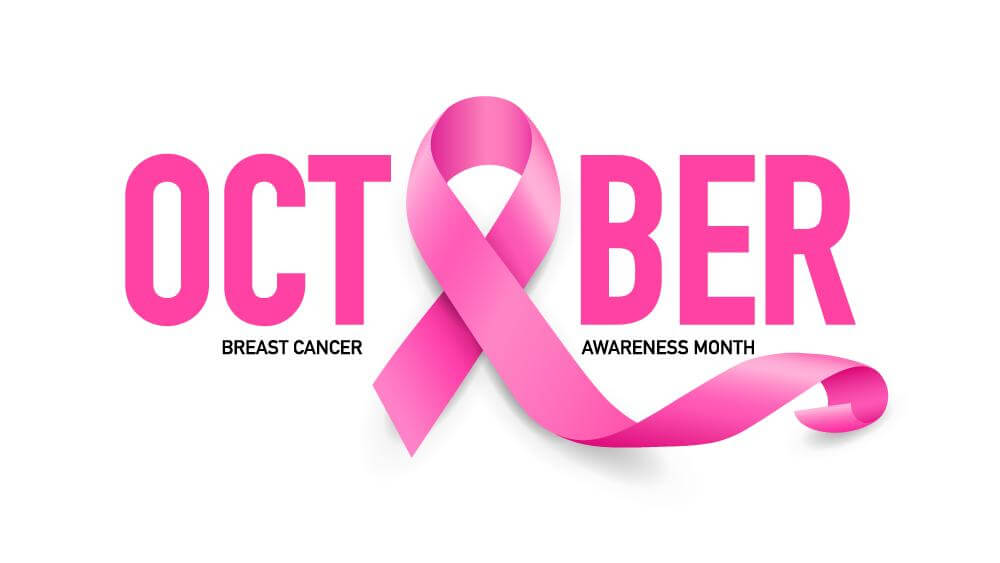Posted: 31/10/2024
Breast Cancer in Young Women – Courtney Bailey from Newcastle’s Story
Reading Time: 3 minutes
Breast Cancer Awareness Month
We are in the final days of Breast Cancer Awareness Month and one of the key messages of the campaign is to raise awareness of the fact that anyone can get breast cancer. It is a common misconception that breast cancer affects middle aged or older women but, in fact, cases of breast cancer in younger women are increasing. According to the Cancer Research UK Website, breast cancer rates in those aged 25 to 49 have risen by nearly a fifth since 1990 and 2,300 women under 40 are diagnosed with breast cancer every year.
It is therefore important to understand the early signs and symptoms, and remembering that spotting cancer at an early stage can saves lives. A recent news story has highlighted the importance of early detection of breast cancer, regardless of age.

26 year old Courtney Bailey from Newcastle, had concerns when she noticed a blood stained water droplet on her left nipple, after coming out of the shower. Following a visit to her GP the next day, she was advised that she did not fit the criteria to be referred and her symptoms were likely due to a “hormone imbalance”.
Days later, Ms Bailey discovered a small, hard lump under the same nipple and returned to her GP, however, even after further examination, was told there was no cause for concern. She was nonetheless referred to a Breast Clinic where she was told that she likely had a cyst or a blocked milk duct, and things would clear up on their own. However, following a precautionary biopsy, it was found that Ms Bailey had precancerous cells trapped within her milk ducts and she was diagnosed with Ductal Carcinoma in Situ (DCIS) – early breast cancer.
Unfortunately, her biopsy also revealed precancerous cells outside of the milk ducts and in the rest of her breast. In order to prevent the disease from spreading further, Ms Bailey opted to undergo the removal of her left breast and was fitted with an implant. She awaits the final test results to see if any cancer remains in the tissue.
What is Ductal Carcinoma in Situ (DCIS)
Ductal Carcinoma in Situ (DCIS) is an early stage breast cancer. It means that some cells in the lining of the ducts of the breast tissue have started to turn into cancer cells. These cells are all contained inside the ducts and have not started to spread into the surrounding breast tissue. DCIS is often detected during a routine mammogram and is considered an early stage of breast cancer.

In some people, if DCIS is not treated, it could become an invasive cancer. DCIS and invasive cancer are not the same thing. In invasive breast cancer, the cancer cells have broken out of the ducts and spread into the surrounding breast tissue. There is then a chance that the cells can spread into the nearby lymph nodes or other parts of the body.
Symptoms of DCIS
DCIS does not often cause any noticeable symptoms and is often discovered during a routine mammogram or other breast imaging tests. However, DCIS symptoms may cause nipple discharge (clear, bloody or milky), a change in nipple appearance or a lump in the breast.
Risk Factors
Although DCIS is not influenced by age or gender, several factors can increase your risk of developing DCIS, including:
- Age: The risk of DCIS increased with age, particularly after menopause.
- Family history: Having a family history of breast cancer, especially DCIS increases your risk.
- Personal history of breast cancer: having a previous diagnosis of DCIS or invasive breast cancer increases your risk of developing DCIS in the future.
- Dense breast tissue: women with dense breast tissue may have a slightly increased risk.
- Hormone Replacement Therapy (HRT): Long term use of HRT may slightly increase the risk.
Treatment
Treatment for DCIS typically involves surgery to remove the affected tissue. The type of surgery will depend on the size and location of the DCIS, as well as other factors. Options may include:
- Lumpectomy: This involves removing the DCIS and a small amount of surrounding healthy tissue.
- Mastectomy: This involves removing the entire breast.
In some cases, radiation therapy may be recommended after surgery to help reduce the risk of DCIS returning.
Our team at Williamsons Solicitors have a wealth of experience in dealing with claims concerning breast cancer and DCIS, including concerns regarding delay in diagnosis. To speak to out clinical negligence team please call 01482 323697 or contact us via our online form.
FRIENDLY, EFFICIENT LEGAL ADVICE
We’re ready to chat when you are
Drop us an email or give us a call for a no obligation chat to see if we can help.